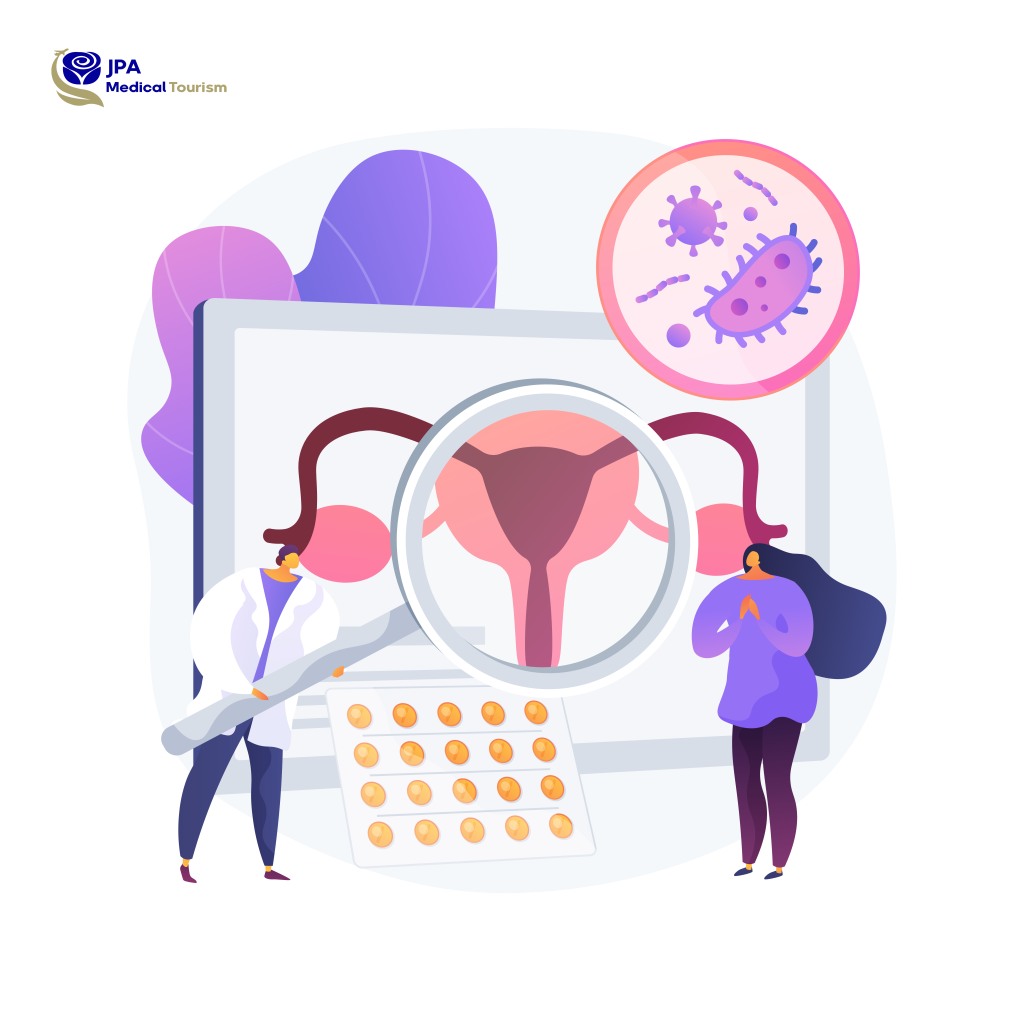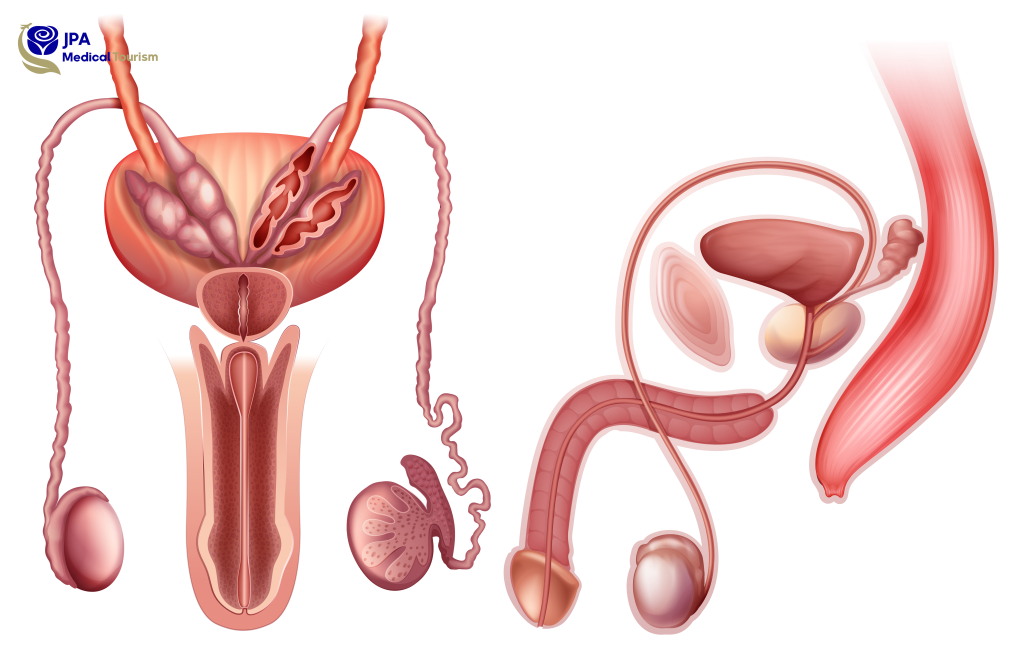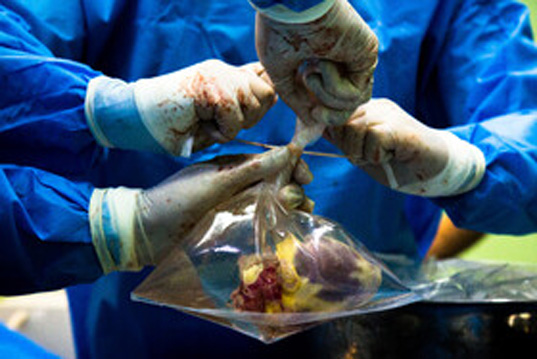Permanent Treatment for Prostatitis
Best Hospital
We Introduce Best Hospital for prostatitis treatment
Best Doctors
We Introduce Best Doctors for prostatitis treatment
Best Price
We Try to introduce best Services with Regular Price



Acute Prostatitis Treatment in Iran
How is the permanent treatment of chronic prostatitis?
If you are looking for a permanent treatment for prostatitis, be sure to read the new method of treating prostatitis, herbal treatment for prostatitis and treatment of chronic prostatitis in the following article.
What do you know about prostatitis?
Prostatitis is a medical event or condition in which the prostate becomes swollen and enlarged. Prostatitis is not actually a disease, but just a symptom of the disease.
Prostatitis is swelling of the prostate gland, a walnut-sized gland located under the bladder and around the urethra in men. The prostate gland produces semen that nourishes and transports sperm cells, and most often prostatitis causes difficulty and pain during urination. Other symptoms of prostatitis can include pain in the groin, pelvis, or genitals, as well as flu-like symptoms.
Swelling or enlargement of the prostate, which is an excretory gland, occurs when too much fluid accumulates in it and can also be a cause of prostate disease. Young men suffering from prostatitis, the first symptom that may bother them is the urgent need to urinate.
If doctors do not diagnose prostatitis, an acute inflammation, in its early stages, it will go into a chronic state, in which the young man has mental problems, as well as chronic prostatitis, which requires a very long treatment. My doctors will be able to diagnose the disease at the first visit in a friendly environment and observation for ten minutes.
Jahan Pakhsh Aram Health Tourism due to the high growth rate of this disease in different countries in the world, in addition to doctors and cardiologists who are very capable of diagnosing and treating this disease (medically and surgically), with the most skilled specialists and genetic counselors in order to receive the latest treatments and care And the advice that every person with a previous history of this disease should have, has been provided to you dear ones.

Treatment of prostate congestion in young people, the causes of prostatitis
What are the causes of prostatitis?
Benign prostatic hyperplasia (BPH)
Chronic prostate infection
Drink a lot of alcohol
Eat hot foods
Prostate cancer
Urinary cysts
Prostatitis affects many men and its chronic form is a medical problem in the urinary system. As mentioned, prostatitis is not a disease, but a predisposing factor for acute prostate infection.
Causes of prostatitis
Important factors in the development of prostatitis are:
Excessive sexual activity.
sitting for a long time
Eating fatty foods and alcohol that accumulate in the prostate may cause congestion.
Masturbation can cause prostate congestion if a person intentionally stops ejaculating.
Prolonged sex can cause prostatitis, so young people should have regular and normal sex.
Horse riding and horseback riding can cause prostatitis and erectile dysfunction by damaging the perineum (the area below the testicles) and disrupting blood circulation in the prostate gland.
Read more: Symptoms of benign prostatic hyperplasia
The importance of treating prostate problems in men
If you experience any of the symptoms of prostatitis that we will mention below, be sure to visit your urologist for further examination. Some types of prostatitis can make infection or other health problems worse if left untreated.
The most important methods that can be used to reduce and improve prostatitis, and the patient usually uses these methods:
One of the easiest ways is to reduce the fluid inside the prostate, which can be reduced by massaging the prostate, which is performed by the doctor.
Sitting in warm water twice a day for 15 minutes can be very beneficial.
Anti-inflammatory drugs in the form of external delivery, massage and exercise are also used.
Read more: How long does a cancer patient live?
Read more: Is prostate cancer fatal?
Read more: How long can a cancer patient live without treatment?
Types of prostatitis
What are the types of prostatitis?
The National Institutes of Health (NIH) recognized and classified prostatitis in 1999, which includes four syndromes associated with prostatitis:
Aesthetic bacterial prostatitis
Chronic bacterial prostatitis
Chronic prostatitis and chronic pelvic pain syndrome (CPPS), which can be divided into inflammatory or non-inflammatory.
Asymptomatic inflammatory prostatitis.
Acute and chronic bacterial prostatitis refers to infection of the prostate with bacteria, which can be treated with antibiotics and supportive care. In bacterial prostatitis, transmission of bacteria during sexual intercourse is very common, but it can spread through the blood, lymph, and touching of various parts of the body.
Chronic prostatitis and chronic pelvic pain syndrome (CPPS) are initially diagnosed with urinary tract pain without any urinary tract infection. If these symptoms are not due to CPPS, the doctor looks for other conditions such as urinary tract infection, cancer of the reproductive system, urinary tract disease, acute urethral strictures or diseases of the bladder nerve.
CPPS can be divided into two categories, inflammatory and non-inflammatory. Inflammatory syndrome (CPPS) is characterized by the presence of white blood cells in the semen, prostate secretions, or the release of bubbles from the bladder after prostate stimulation, the condition of the non-inflammatory syndrome, and the absence of white blood cells in animals.
Asymptomatic inflammatory prostatitis is a sudden diagnosis of prostatitis without any symptoms or complaints from the genitourinary system in front of the patient, and asymptomatic prostatitis does not cause infertility, benign prostatic hyperplasia (BPH) or prostate cancer.
Liver transplant
A liver transplant is a surgery that removes a liver that no longer functions properly (liver failure) and replaces it with a healthy ...
Kidney transplant
A kidney transplant is a surgery to place a healthy kidney from a living or deceased donor into a person whose kidneys no longer function ...
Ischemic Heart Disease
Ischemic means that an organ (e.g., the heart) is not getting enough blood and oxygen. Ischemic heart disease, also...
Heart Bypass Surgery
Heart bypass surgery has been a life-saving treatment for more than 60 years.It is the most frequently performed openheart..
Heart Transplant
In heart transplant surgery, the patient’s heart is replaced by a natural heart from a donor who died recently or may be...
Open Heart Surgery
Open (traditional) heart surgery is when the chest is cut open and surgery is performed on the muscles, valves, or arteries of ...
Angioplasty
Coronary angioplasty is a treatment intended to fix narrowed or clogged arteries with the aim of enhancing blood ...
Echo
Echocardiography test is a procedure that uses ultrasound waves to take real-time images called echocardiogram …

About: Duration of chemotherapy
I have more information about improved testicles
More information about prostate cancer
The ultimate prostate treatment
Chronic prostatitis treatment
Urology is the science and study of the structure and function of treating disorders of the urinary system and male reproductive organs. Urology is specific to the urinary system and disorders that can involve these organs, disorders in the last part of the body that can affect the reproductive organs or the urinary system. Define prostate and bladder disorders and alcohol stones.
A variety of specialized techniques are used to diagnose urinary tract disorders. Such as urine examination, ultrasound, computed tomography, and magnetic resonance imaging. Urologists can prescribe different medications. If necessary, they perform surgery, for example, break up alcohol stones or remove an enlarged prostate through the urethra.
Can prostatitis be treated permanently?
The answer is yes because this disease is easily treatable if diagnosed early. Treatment for prostatitis usually begins with antibiotics for several weeks. If you recover, you should take the medicine for two to three months. If you do not feel better while taking the antibiotics, further tests are needed.

How is prostatitis treated permanently?
Treatments offered depend on the type of prostatitis you’ve been diagnosed with. Every man responds to treatment methods differently. If something doesn’t work, you should try something else, and there are things you can try to help yourself. If your symptoms do not improve with the treatment your doctor provides, ask him or her to refer you to a urologist who specializes in managing prostatitis.
You may need to try several treatments. There is no standard treatment that works for all men, and the first step is to take antibiotics, which are usually stopped if symptoms do not improve. One of the well-known strategies is the use of cefixin to treat prostatitis. If muscle spasms cause pain or urinary problems, muscle relaxants and alpha blockers may be prescribed.
Permanent treatment of prostatitis by taking antibiotic tablets for prostatitis
One of the most common treatments for prostatitis is the use of antibiotics, which a doctor prescribes based on the type of bacteria. If your symptoms are severe, you may need intravenous (IV) antibiotics. Duration of treatment from 4 to 6 weeks, the former may require a longer treatment of chronic prostatitis.
Non-steroidal anti-inflammatory drugs (NSAIDs) are some of the treatments available for prostate infection. Anti-inflammatory drugs, such as nonsteroidal anti-inflammatory drugs (NSAIDs), may reduce pain. Medications that slow prostate growth, such as 5-alpha reductase inhibitors, may be used.
Definitive treatment of prostatitis with alpha drugs
These medications relax the bladder neck and muscle fibers where the prostate attaches to the bladder. The use of these medications can reduce the patient’s symptoms such as painful urination.
The definitive treatment of swollen prostate with prostate massage
Prostate massage is sometimes used to treat prostatitis, which is similar to examining the prostate and is done through the anus and finger. Prostate massage can relieve symptoms of inflammation, but doctors disagree about its effectiveness.
The doctor massages the prostate through the wall of the posterior canal (rectum) and, using gloves and gel for added comfort, gently inserts his or her finger into your back. If you have prostate.
If medications are not effective or symptoms are severe, a urologist may recommend a minimally invasive procedure to remove excess prostate tissue and widen the prostate canal. If you are using this process, do one of the following:
Radiation Thermal Therapy
microwave power
High intensity ultrasound.
Electricity evaporates.
Information about: We are after radiotherapy
Information about: Carcinoid tumor removal
The definitive treatment of chronic prostatitis
Syatec antibiotic tablets d. You should eat for at least four to six weeks. If symptoms persist after treatment, the doctor can do a final urine test to see if the infection has cleared up. If you don’t use antibiotics for all bacteria, you may develop symptoms, and if that happens, you will need more antibiotics.
If you are taking antibiotics for an infection but still have symptoms, you may need more tests to find out the cause. The last type of medication is called alpha-blockers. Some men find that taking alpha-blockers along with antibiotics can help improve urinary symptoms such as weak or slow flow. If you have a lot of discomfort or pain, you may need to take a pain reliever.
If your doctor is certain that it is a chronic (long-term) infection, you may be offered a prostate massage to help relieve the pain.


Chronic bacterial prostatitis treatment
Treating chronic bacterial prostatitis to treat infection and prevent complications with antibiotics for 6 to 12 weeks. If infected, long-term antibiotic treatment may be necessary. Prostate stones can cause infection and make treatment more difficult. If surgery is needed to remove the stone. If urinary problems such as a narrowing of the bladder or urethra are causing prostatitis, surgery is necessary. In cases of recurrent infections, a prostatectomy is rarely performed and can be a last resort.
Allergic prostatitis treatment
My goal is to treat prostatitis and prevent complications. Treat allergic bacterial prostatitis with antibiotics, pain relievers, antipyretics, laxatives, fluids, and rest. If you are unable to urinate or need intravenous antibiotics, you may be admitted to hospital for a short period of time. Treatment (usually at home) continues for 4 to 6 weeks and treatment should continue during this period.
Allergic bacterial prostatitis treatment
Treatment of allergic bacterial prostatitis with antibiotics. This infection must be treated quickly and patients usually take antibiotics for up to four weeks. If the infection is more severe or the antibiotic tablets do not work well, you may need to take the antibiotics for a longer period of time. Make sure to finish the course of antibiotics – if you don’t take all the pills, the infection may come back.
Also, if necessary, spend some time in the hospital so you can take antibiotic drops during treatment. Fluids containing antibiotics are given through a thin tube into a vein, usually in the arm, and after the infection clears you will be given antibiotic tablets to take at home for two to four weeks.
If bacterial prostatitis is not treated in time, it can lead to prostatitis, in which pus accumulates inside the prostate, which can be dangerous and may require surgery to drain the secretions, as well as antibiotics.
During treatment in the hospital or at home, make sure you get enough rest and drink enough fluids (six to eight glasses of water per day). Avoid or reduce soft drinks, artificial sweeteners, alcohol and caffeinated drinks (tea, coffee, cola), as they can irritate the bladder and aggravate some urinary problems. If necessary, the doctor can also give you a pain reliever such as acetaminophen or ibuprofen.
Treatment of asymptomatic prostatitis
Symptomatic prostatitis usually does not require treatment because it does not cause any symptoms. But you may need to take a dose of antibiotics if:
You have high levels of a protein called prostate-specific antigen (PSA) in your blood.
You have a high level of white blood cells in your urine or semen, which is a sign of an infection or inflammation in your body.
If you are prescribed antibiotics, your doctor will tell you when to take them, but it is usually between four and six weeks, and in most cases, four to six weeks after you finish the antibiotics, your PSA level will be back to normal. to normal.
Information about: Infertility treatment after chemotherapy
Information about: After the first dose of chemotherapy
Information about: Transurethral resection of the prostate (TURP)
New treatment for prostatitis
Researchers are trying to learn more about prostatitis so they can develop much better treatments. They explore the causes of prostatitis and why it affects men differently. This involves checking for certain genes. A better understanding of the causes means that in the future, treatments can be customized for each man.
They also seek different treatments. It all includes a number of medications, surgery, and the use of small electrical currents to relieve pain. Another area of research is looking for ways to help men live with prostatitis, such as cognitive behavioral therapy (CBT), and ways that men can control it more – such as diet and supplements. Most research is currently done in other countries, but if you are interested in participating in a clinical trial, discuss it with your doctor as there may be trials you can join in the future.
Living with prostatitis
Long-term prostatitis can be a very difficult disease in a person’s life. Pain or discomfort can make it difficult to perform daily tasks, and you can’t warn before a heart attack occurs. Long trips or sitting in meetings when you don’t know when you’ll be able to go to the toilet can be worrisome, especially if you need to go to the toilet often. Sitting for long periods of time can be very annoying
If you have prostatitis, it is normal to feel a little frustrated because some men feel that others do not understand their symptoms and this makes them feel lonely. Some men even find that living with prostatitis and its symptoms makes them feel depressed or anxious.
Feeling depressed or anxious may worsen your prostatitis symptoms. If you feel depressed or anxious, talk to your doctor or nurse because there are definitely things that can help you. Sometimes, talking to someone about how you feel can make things feel a little better.
If your symptoms of prostatitis do not improve with your doctor’s treatment, ask them to refer you to a doctor who specializes in managing prostatitis. Your GP may also be able to refer you to a psychiatrist or counsellor, or you can join a support group where it may be helpful to talk to other people who understand what you’re going through.
Talk to your doctor about creating an action plan so you know what to do when you have a seizure, as this will help make sure you can get treatment quickly and get a referral to a specialist if needed. This section is about the management of long-term prostatitis. If you think you may have acute bacterial prostatitis, talk to your doctor because it could be a serious infection that may require immediate hospital treatment.
Pain control
If you have pain issues, talk to your doctor as he or she can prescribe pain relievers that can help you. If these methods don’t work, ask him to show you a pain clinic. Sometimes the pain makes you feel anxious and do not want to do anything. But inactivity can cause you frustration and may increase your pain.

Some studies also show that how you feel about pain can affect how much pain you feel. So people who think a lot about their pain, or feel like there’s nothing they can do to reduce it, can experience worse levels of pain, but there are ways to help you manage the pain.
What can I do to control the pain?
You may find some of the following ideas helpful to help you get comfortable and manage your pain.
Find ways to relax
Feeling stressed or anxious can make or exacerbate symptoms, so if you have this problem, try things to help you relax. You can try relaxation techniques such as deep breathing, meditation, taking a warm bath, or listening to music.
distract yourself
Do something that takes your mind off the pain, like listening to music, reading, watching TV, or chatting with someone who seems simple but can really help.
Transcutaneous electrical nerve stimulation (TENS)
Some people find that using a TENS device helps relieve pain. Transcutaneous electrical nerve stimulation (TENS) uses mild electrical currents to target areas of the body where there is pain. But there isn’t a lot of solid evidence to show if it actually works. Talk to your doctor or pharmacist to learn more about using a TENS machine and how to get one.
Plan your daily chores
Try to plan your day by setting goals and taking frequent breaks, writing down goals and prioritizing tasks is a good way to stay motivated.
Sit comfortably
If you need to sit for long periods of time, for example if you work at a desk or drive a lot, try using a soft or inflatable pillow while glowing to control the pressure. Change your position frequently to keep yourself as comfortable as possible – stand up and walk every 30 minutes.
be active
Exercise can help some men feel better and reduce symptoms, including pain, and that includes brisk walking, jogging, or playing sports such as soccer — anything that raises your heart rate. Be sure to consult your doctor before starting to exercise.
stretch
Some men find that regular gentle stretching can help them feel more comfortable and reduce symptoms. A physical therapist can show you how to stretch, or you can try joining a yoga class.
Try to sleep more. If something is disturbing your sleep, talk to your doctor or nurse. This can be anything from urinary problems to fear of keeping you awake.
Information about: Cancer treatment hospitals in Iran
Information about: Treatment of prostate cancer that has metastasized to the bone
Make lifestyle changes
There are a number of things you can try that have worked for other people. Trying different things can help you feel more in control and that you are doing something active to improve your health, and if one thing doesn’t work, definitely try something else.
Be careful what you drink
Drink plenty of fluids – about six to eight glasses of water a day. Also reduce soft drinks, artificial sweeteners, alcohol and caffeinated drinks (tea, coffee, cola) because they can irritate the bladder and cause some problems.
Be careful what you eat
Certain foods may exacerbate your symptoms, and you should try to figure out these things so that you can avoid them. There is some evidence that spicy foods can worsen symptoms of CPPS.
Avoid cycling
It’s best to avoid activities that put pressure on the area between the back and the testicles (perineum), such as cycling, as this can make symptoms worse. If you want to continue cycling, you can use another saddle, such as a Gel saddle.
Keep your diary
This can help you discover things that make your symptoms worse, and can be a helpful way to let your doctor know what you’re experiencing, things like food, drink, exercise, stress levels, and your symptoms. note
Some men also find that regular ejaculation helps their symptoms because it drains some fluid from the prostate – although there isn’t much evidence for this, and some men may find the pain to be much worse.









